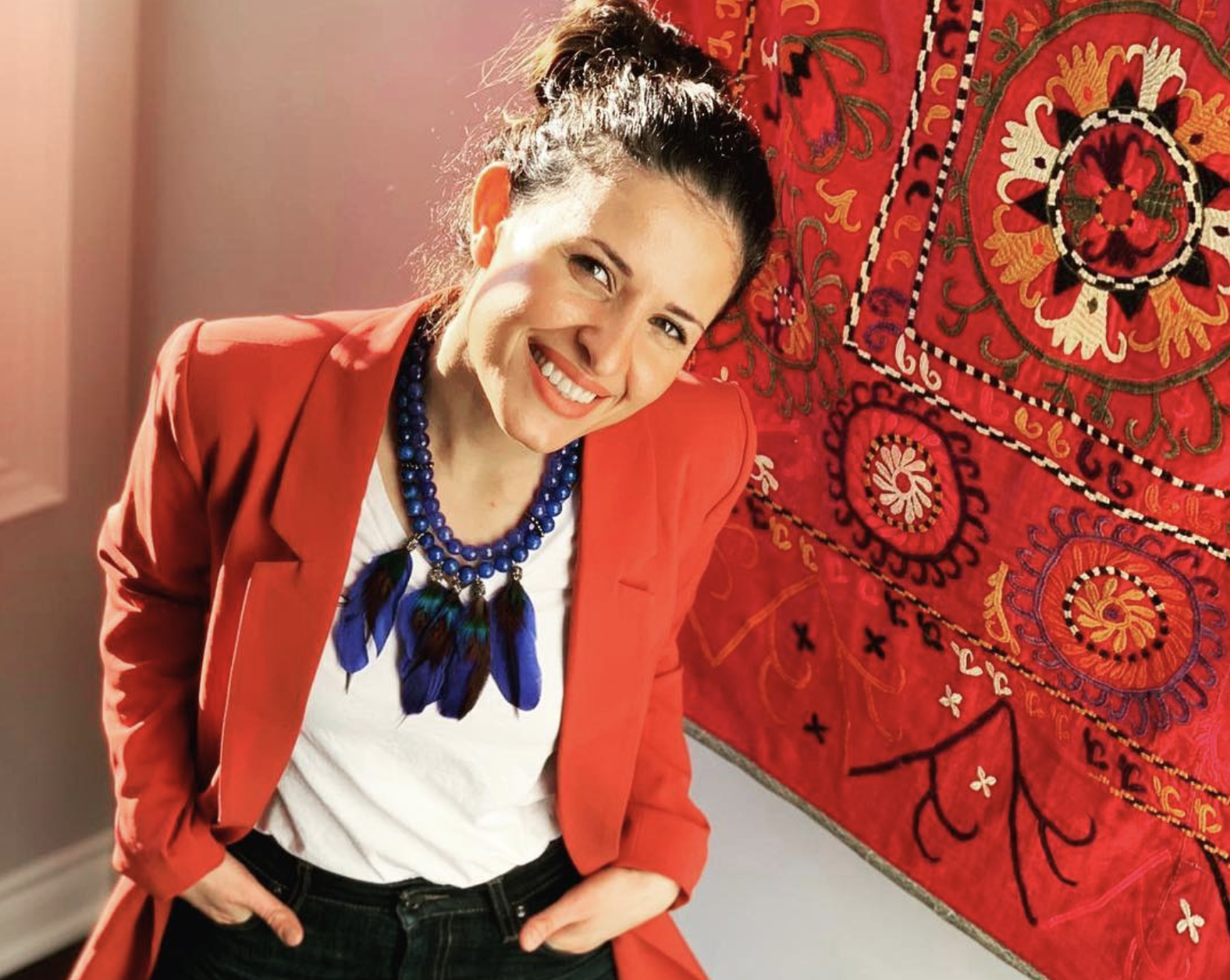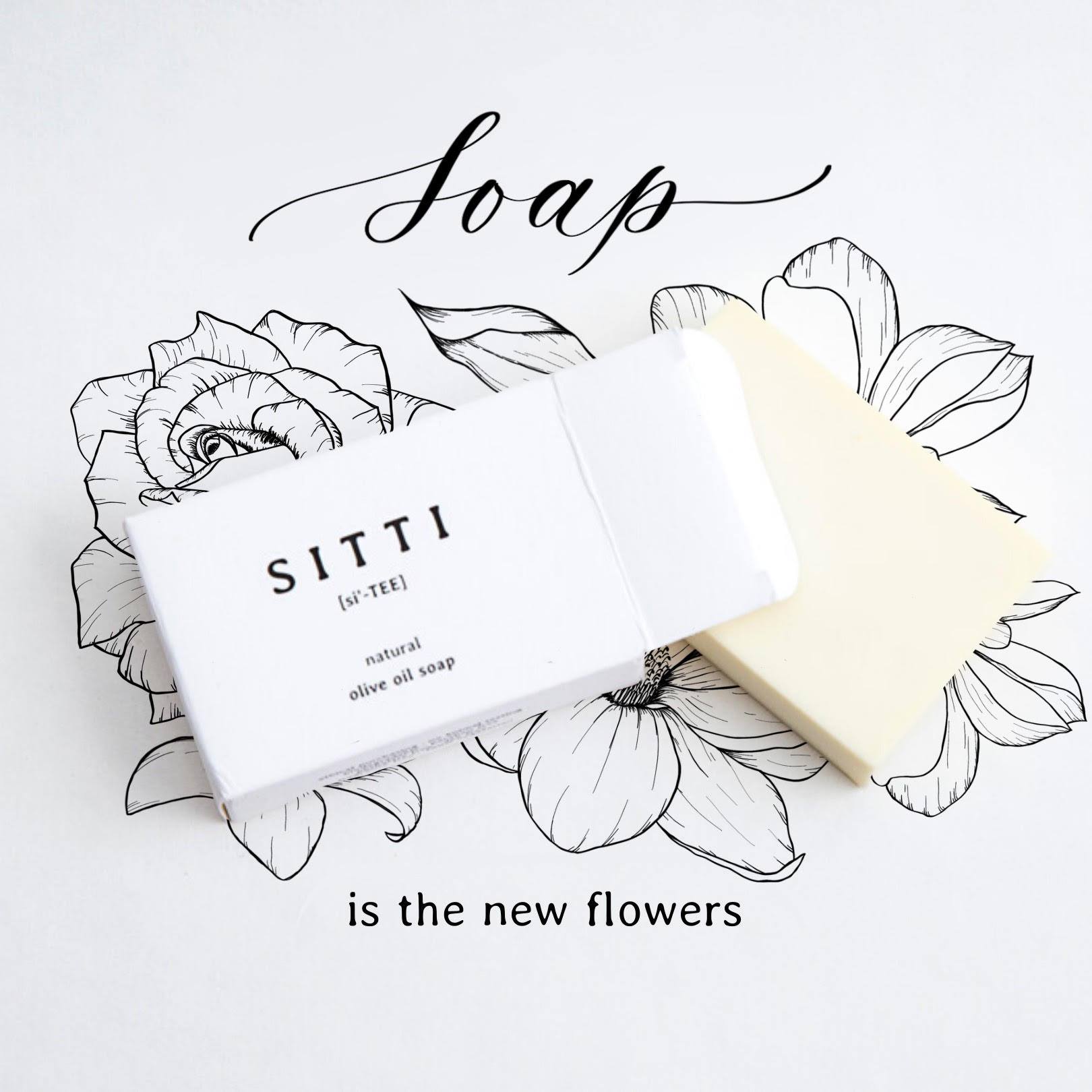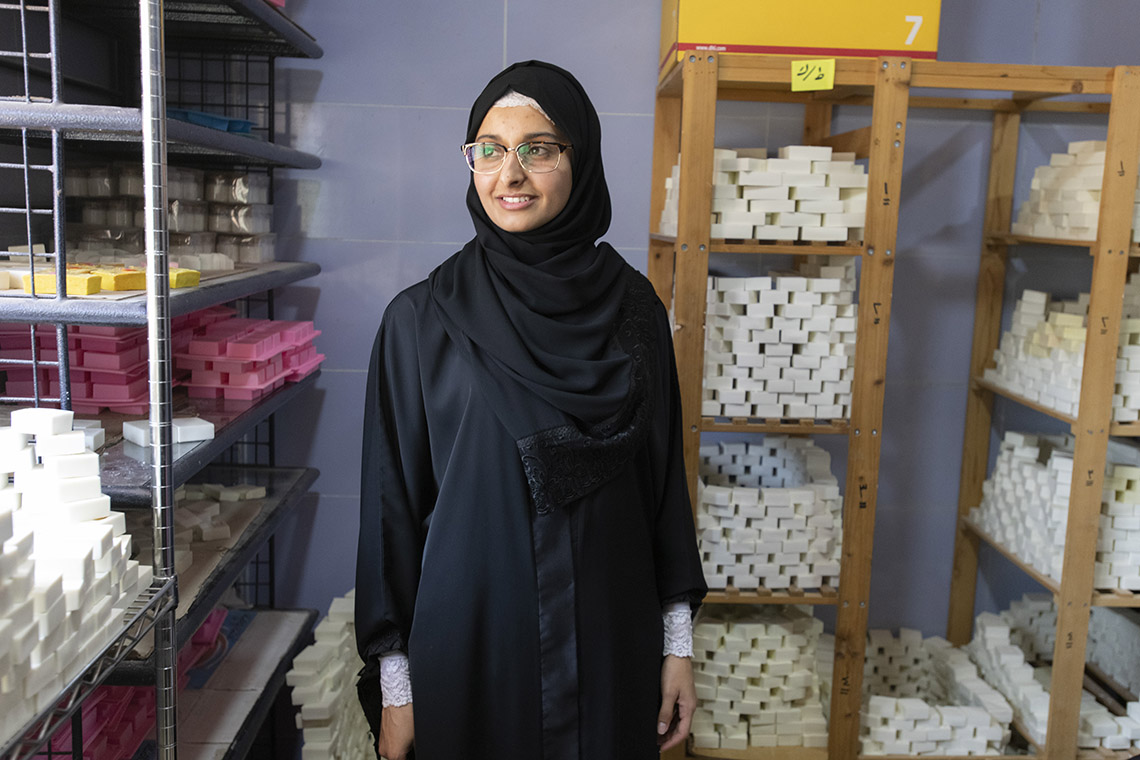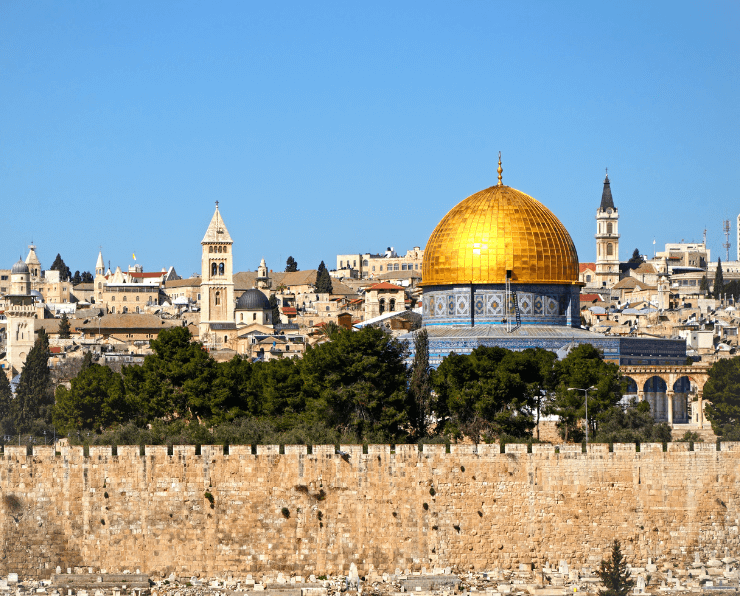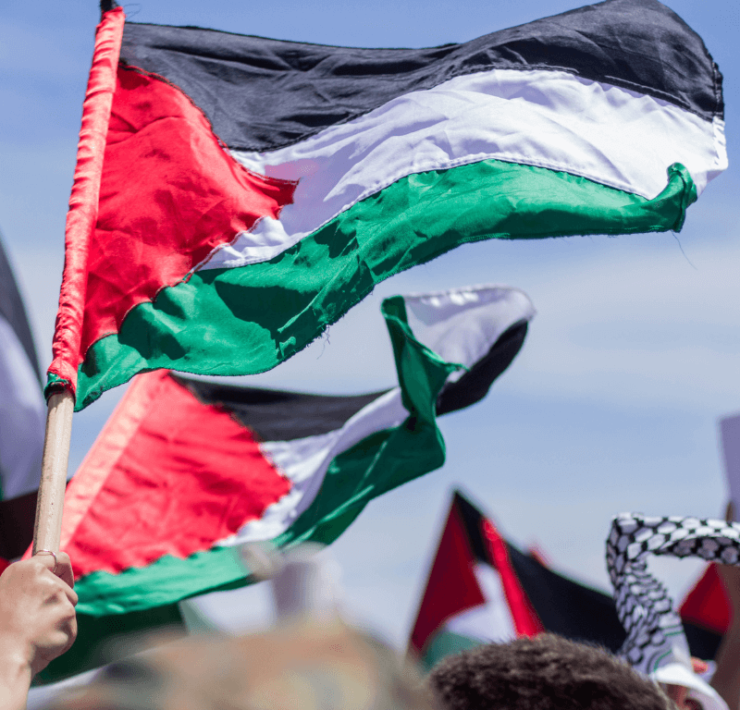With Covid-19 causing chaos throughout the world, we decided to conduct a series of interviews with people across the Middle East and North Africa to try to understand how the effects are being felt across the region.
We’ve spoken to people across various countries and industries from journalism, education and tourism to digital marketing, social entrepreneurship, wellness and arts. Here are their reflections on this ground-breaking time for the region and the world.
JORDAN / CANADA
Noora Sharrab – Social Entrepreneur
Noora is a social entrepreneur whose companies, Sitti Soap and Bubu & Lulu Toys, provide employment to refugees – particularly women and the disabled in camps in Jordan. She also founded Hopes for Women, which helps refugee, displaced and non-status women to continue their education through scholarships.
While many of us have been sitting at home trying to find ways to pass the time during the lockdown, Noora has been working tirelessly to continue to support the livelihoods of the women she employs in the Middle East – all while home-schooling her three children in Ontario, Canada. She shares her experience and perspectives below.
Whereabouts in the world are you, and what’s changed about your life and work as a result of Coronavirus?
I’m in Toronto, Canada, where I live with my family. As a mother of three, I’m now forced to wear multiple hats what with home-schooling and having the kids around while also running my business. There’s also the stress of being indoors and not being able to get out which has definitely had its limitations!
How is the pandemic playing out in Canada and Jordan?
In Canada we have a full lockdown in effect – the malls are closed, the parks are closed, the schools are closed… All non-essential work has been stopped. The only access we have is to grocery stores, pharmacies, the post office and obviously hospitals and doctors’ offices, so going out to get groceries is the only time you see other people.
There have been surprisingly positive outcomes in the sense of people coming together to make a difference in their communities. Immediately we saw organisations and coalitions of groups that are working to make an impact, for example raising money for food banks and running campaigns to help the local community – whether it’s the Muslim community, or just the community in general. People have really been looking out for each other and for local businesses.
In Jordan, there was a complete lockdown, so for Sitti (my business) it meant we had to close down our women’s centre. In the beginning when things first started, we thought only non-essential programming would be stopped, but things escalated really quickly and within 24 hours we realised we needed to close everything down and everybody needed to stay home.
 A full lockdown in Jordan was quickly implemented and imposed on the streets by military personnel (image: CBS News)
A full lockdown in Jordan was quickly implemented and imposed on the streets by military personnel (image: CBS News)
There were government instructions not to move about and there was no access for travel between cities, so you needed a permit to travel between the camp (where the business and women’s centre operate) and the city. To be able to go anywhere by car you needed a permit – or someone who had a permit – which meant you had to prove that you were providing an essential service. So if you wanted to get groceries and you didn’t have a permit, you had to go on foot. Luckily for us we were working with a driver who had a permit, so we were still trying to move inventory out of the camp, to continue running as a business and fulfil orders. But everybody was stuck.
It’s really unknown what this will mean for the future of the country. I think for us, the one thing we’re really worried about is the vulnerability of the community if they were to be exposed to the virus. When you work in refugee camps, you know that the people are much less likely to be able to support themselves.
How are you spending your time in lockdown? Are you working on anything in particular you’d like people to know about?
When everything first happened, we immediately launched a crowdfunding campaign to provide food baskets for the families in the camp, and – hamdulillah – within three weeks we reached our fundraising target of $17,000. Thankfully, we were able to distribute these before Ramadan.
Although we’re not in the business of humanitarian relief, we saw this as something we needed to do as a company – we needed to react and be there for the refugee community. The camp had 2-3,000 daily workers who were immediately impacted by job losses when the lockdown happened. These are communities that live hand to mouth, so if they don’t make a wage one day, they probably won’t be able to feed their families. So it was very important for us to step up and run this campaign, and we partnered up with a company called KUVRD to run the fundraiser.
The most important thing for us was to make sure that we were still able to continue our projects, despite the challenges to accessibility. We worked with the team at Banat Connect – one of Sitti’s beneficiary programmes – and Hopes for Women in Education to ensure that women who couldn’t physically get access to these programmes could still access them remotely.
We moved our library online, holding virtual book club meetings on Zoom, and we made sure that the language exchange programme we run with Banat Connect was able to continue to operate and to proceed with enrolment for our summer semester. Thankfully, some students could still get WIFI and we were able to provide others with devices and laptops so they could still participate in the programme.
Another thing we did immediately in response to the pandemic was to run our ‘Safe Hands’ digital media campaign, which included videos and images of kids washing their hands to show proper hand-washing techniques. With that, we distributed 500 bars of soap immediately to families in the camps.
For us, the pandemic meant we needed to push harder than ever to work with our partners to reiterate certain key messages. We started with the safe hands campaign, communicating the importance of washing your hands for flattening the curve. Then we launched another communications campaign with the slogan ‘Soap is the New Flowers’ – emphasising that these kinds of products, which are usually given as gifts, are now being seen through a totally different lens. We really wanted to let people to know that we’re still up and running – taking special Covid-19 preventative measures of course.
At the end of the day, if we weren’t selling anything, we wouldn’t be able to pay the women who work for us in the camp. And one of the things we really wanted to make sure was that there wouldn’t be an interruption to people’s salaries as a result of the lockdown. Especially considering many of the women are at home and can’t necessarily go out to work, so my co-founder and I were absolutely clear that we didn’t want anybody’s salaries to be interrupted by this. So making that commitment to stand up for the community meant we had to keep pushing to continue marketing and partnering with people and focusing on outreach in order to spread our message and our products.
We also recently launched a campaign with Audi Middle East, who have partnered with us to purchase soap boxes, and with every soap box they purchase they’ll be making a donation to UNHCR. So they’re not only helping support small businesses like ours, but they’re also contributing to the emergency preparedness of refugee communities.
What knowledge or wisdom do you hope people will take away from this time?
I think what we can take away from this time is that, now more than ever, we mustn’t take things for granted. At the end of the day, we’re fighting an invisible war. And it shows how we’ve taken for granted seeing people face to face – the little things, like a cup and coffee with a friend. I’m really seeing it with my kids – more than ever we need that human connection.
So coming out of this, I think we really need to appreciate reconnecting with our friends and family. I know so many people who haven’t seen their parents and close family members in over a month now and it’s been really hard on them. So we have to come together as a community.
And we need to appreciate the sacrifices people have been willing to make, for example those who have taken decisions not to see their loved ones because they didn’t want to risk their health. I think in a way that’s a really beautiful thing because it really shows what we’re willing to do for each other.
What 3 words best describe your personal experience of the pandemic?
It’s hard to pinpoint exactly how I’ve felt because it’s changed over the course of the pandemic. The three words I would use are:
Motivation – to not just sit around idly but to do something, particularly from a business perspective.
Overwhelm – from a family perspective I’ve definitely felt stressed and overwhelmed, although I’m also grateful for this time with my family and the fact that we have our health.
Resilience – I feel like I’ve learned from both my ancestors and also the women we work with everyday about how, in spite of hardship, they remain resilient. For example, I look back at my grandmother – my company is called Sitti which means Grandmother – and I think, what would my Grandmother do and what would she say if she were alive? And I know for sure that they’ve gone through their own versions of this pandemic – disasters and wars that they’ve had to live through. This is just our version of that, and I’m hopeful that we’ll look back one day and learn a lot from it.
To stay up to date with Noora’s incredible work with Sitti and Hopes for Women, follow her on Instagram.
ARE YOU BASED IN THE REGION?
How has your life changed as a result of the lockdown? We’d love to hear your reflections on the situation where you are. Leave a comment and share your experience of this strange time that’s simultaneously keeping us apart and bringing us closer together.


